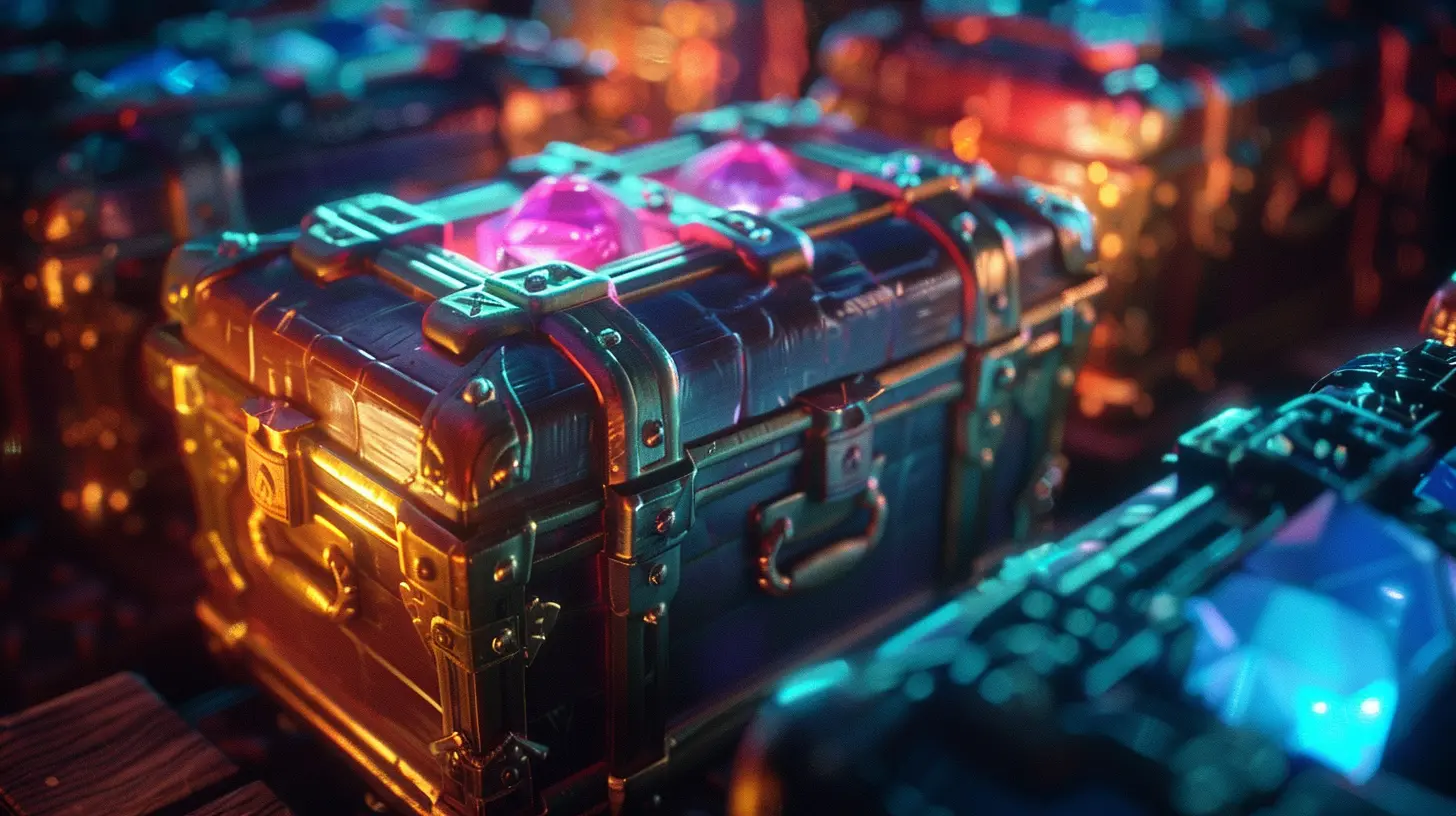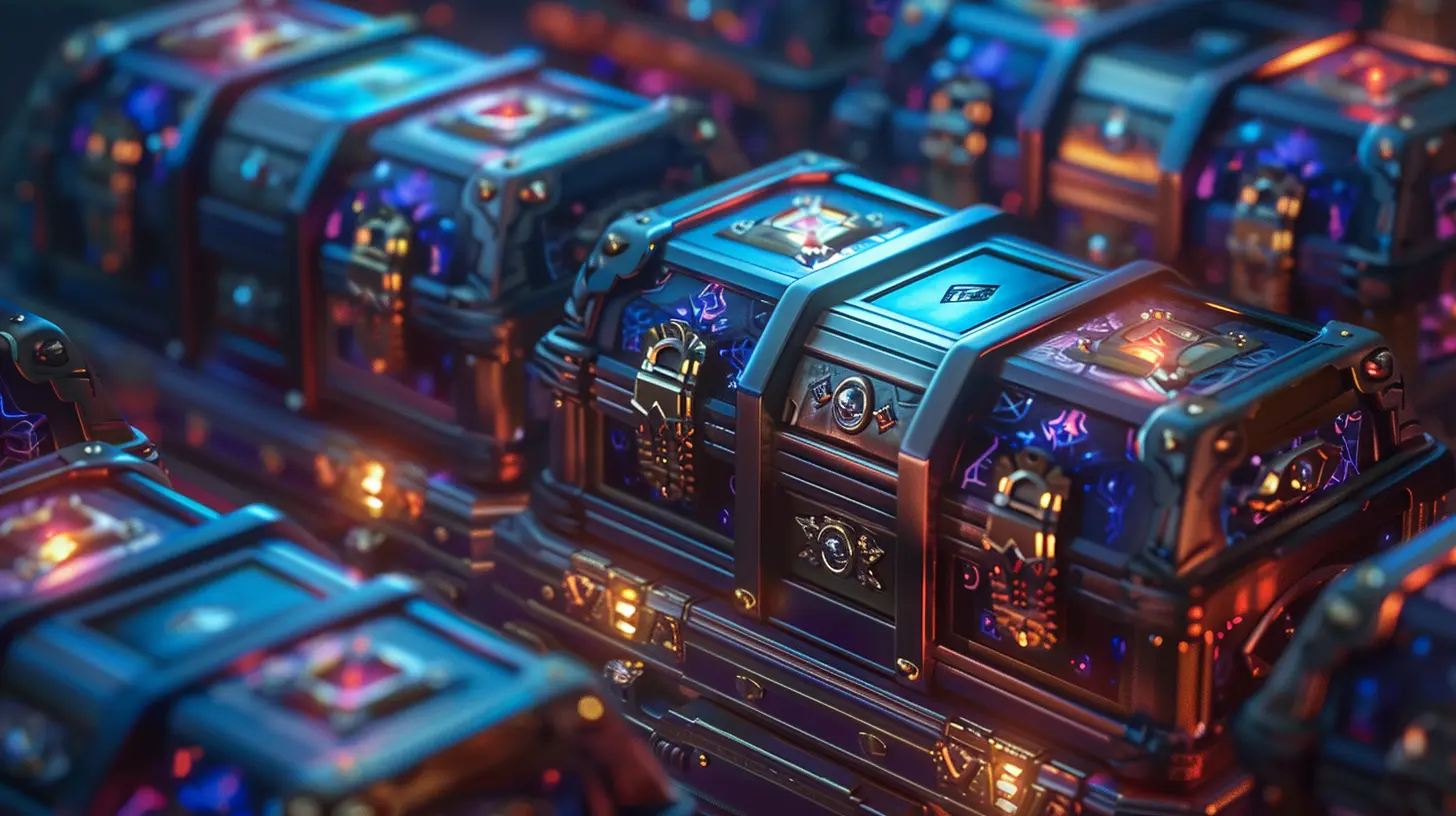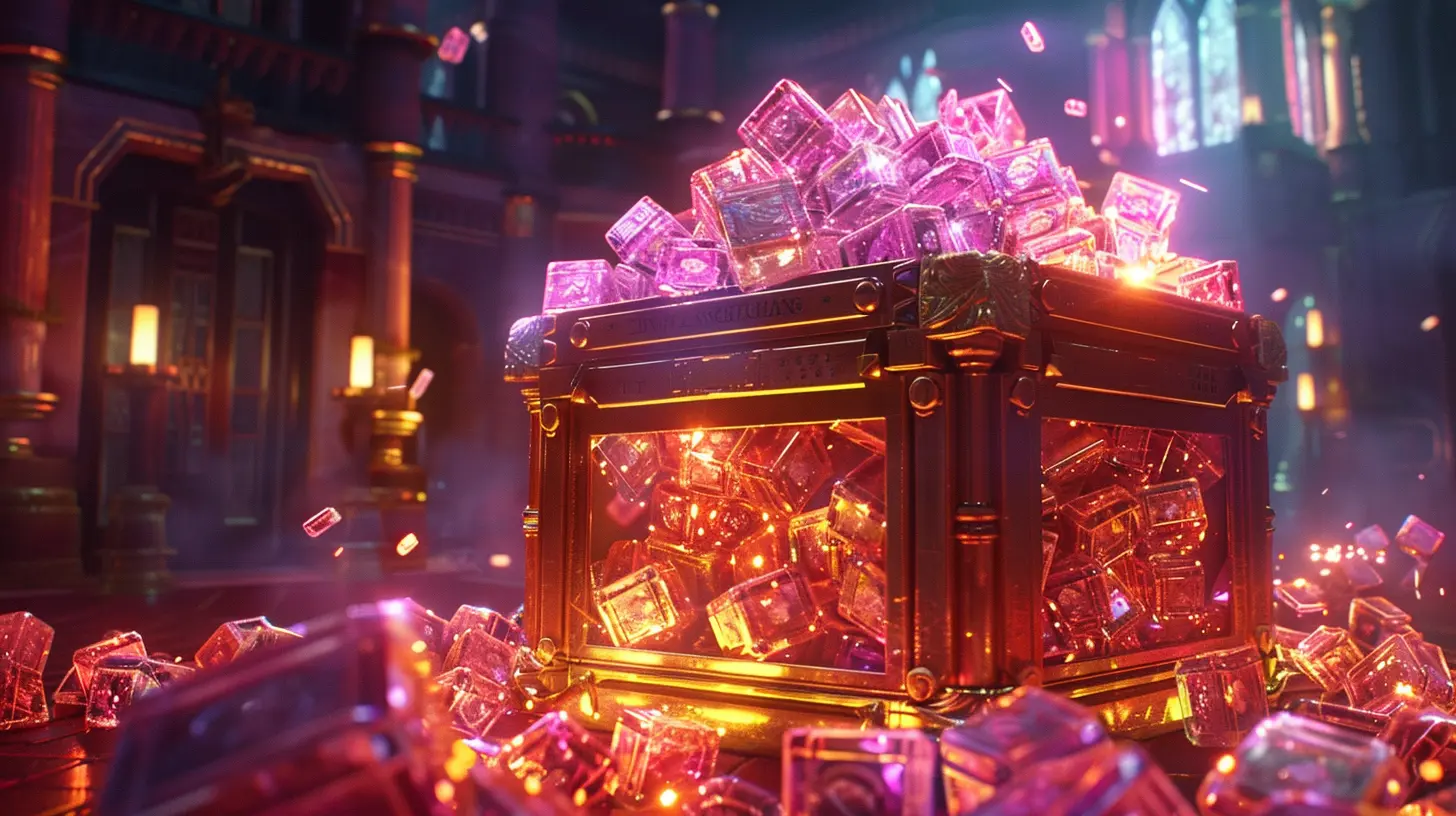Why Gamers Are Split on Loot Boxes and Gacha Systems
14 December 2024
Loot boxes and gacha systems have been a hot topic in gaming for years—kind of like pineapple on pizza. Some people are all for it, while others wouldn’t hesitate to drag it into the dumpster fire of bad gaming ideas. These mechanics divide the gaming community like few other topics do, raising questions about fairness, gambling, and value. But why exactly are gamers so torn? Let’s dive into this rabbit hole.
What Are Loot Boxes and Gacha Systems?
Before we go headfirst into the controversy, let’s cover the basics. If you’ve been gaming for a while, you’ve probably encountered loot boxes or gacha systems, even if you didn’t realize it at the time.Loot Boxes 101
Loot boxes are virtual mystery boxes that hold random rewards, ranging from cosmetic items to game-changing weapons or characters. You typically buy these with in-game currency, which can often be purchased with real money. Opening a loot box feels a bit like unwrapping a present—but there’s no guarantee you’ll like what’s inside. It could be a rare item, or (more likely) a duplicate of something you already own.Gacha Mechanics, Explained
On the other hand, gacha systems—popular in many mobile games—are inspired by Japanese capsule toy vending machines (gachapon). The concept is similar to loot boxes: you "pull" for a chance to unlock new characters, skins, or items by spending in-game or real currency. The thrill of getting that coveted rare unit can be addictive, and therein lies the problem.
Why Some Gamers Love Them
Let’s be honest: loot boxes and gacha systems can be... well, kind of fun. There’s a rush that comes with rolling the dice, so to speak. It’s like scratching a lottery ticket—what if this is the one? That anticipation is electrifying. Here’s why some players are all for them:The Thrill of Randomness
Gamers often compare opening a loot box to gambling, but in a good way. It’s that dopamine hit, the heart-pounding excitement as you hope for the jackpot. Some people genuinely enjoy the thrill of not knowing what they’ll get, especially when there’s a chance it’s something really rare. It’s a psychological rollercoaster, and for some, it’s why they keep coming back.Instant Gratification
In a world where everything feels like it takes forever (looking at you, grind-heavy RPGs), loot boxes provide a shortcut to cool stuff. Want that legendary sword or flashy skin? You might get it in a few clicks—no grinding required. For busy gamers, this "pay or play" option can save time, even if it’s a bit of a gamble.Financial Support for Developers
When done right, loot boxes and gacha systems can give games a financial lifeline. Free-to-play games, for example, rely heavily on these mechanics to generate revenue. For some players, spending a little cash feels like a fair trade-off to support the developers of a game they enjoy. It’s like tipping a street performer after an amazing act—except instead of a hat, it’s a loot box.
Why They're Hated by Many
If loot boxes and gacha systems were all sunshine and rainbows, we wouldn’t even be having this conversation. The truth is, they’ve stirred up a lot of outrage over the years—and for good reason.Pay-to-Win Nightmares
One of the biggest complaints is the dreaded "pay-to-win" model. Some games use loot boxes and gacha systems in a way that gives paying players a significant advantage. Imagine logging into your favorite multiplayer game, only to get steamrolled by someone who spent $500 on premium loot boxes. Frustrating, right? This imbalance can make games feel less about skill and more about who has the biggest wallet.Gambling or Gaming?
Here’s where things get tricky. Many critics argue that loot boxes and gacha systems are too close to gambling for comfort. After all, you’re spending money for a random chance at something valuable. The randomness makes it addictive, and studies have shown that these mechanics can trigger the same brain responses as actual gambling. This raises ethical questions, especially when kids are involved. Should gaming companies really be profiting off mechanisms that can lead to addiction?The Never-Ending Grind
Here’s the cynical twist: some games intentionally make it so hard to earn in-game currency that you feel pressured to spend real money. It’s like standing in line for hours at a theme park, only to realize there’s a VIP line if you’re willing to shell out more cash. This slow drip of rewards can frustrate players, turning what should be fun into a grind-heavy slog.Transparency Issues
Another sticking point is the lack of transparency. Ever wonder what your odds are of pulling that ultra-rare character? Yeah, you’re not alone. Some companies keep those probabilities a closely guarded secret, which can feel shady at best and downright manipulative at worst. And even when odds are disclosed, they’re often so low that players question whether it’s even worth trying.
The Broader Cultural Divide
The split over loot boxes and gacha systems doesn’t just come down to personal preference—it also reflects broader cultural attitudes. For example, these mechanics are wildly popular in countries like Japan, where gacha games dominate the mobile market. Meanwhile, in places like Europe, governments are cracking down and even banning games that feature loot boxes, calling them a form of unregulated gambling.This divide makes one thing clear: how players perceive these mechanics can depend a lot on where they’re from, what games they play, and how they view the role of money in gaming.
Are There Good Loot Boxes and Gacha Systems?
Not all loot boxes and gacha systems are created equal. Some developers have found ways to implement these mechanics in ways players actually enjoy—or at least tolerate.Cosmetics Only, Please
The most accepted form of loot boxes are those that only contain cosmetic items. Think skins, emotes, or banners—stuff that won’t give you a competitive edge. Overwatch is often cited as an example of a game that did this well (though opinions still vary). Players feel less cheated when what they’re buying doesn’t directly impact gameplay.Guaranteed Value
Another appealing approach is when games offer guaranteed rewards alongside the random ones. For example, some gacha games implement pity systems: after a certain number of unsuccessful pulls, you’re guaranteed a rare character. It’s like a safety net for your wallet, and it softens the blow of bad luck.Earning It the Hard Way
Finally, some games allow players to earn loot boxes or gacha pulls through gameplay—not just real money. This makes the system feel more like an optional bonus rather than a paywall. It might take longer, but at least players have a choice.The Future of Loot Boxes and Gacha Systems
Like it or not, loot boxes and gacha mechanics are here to stay—for now, at least. With governments stepping in to regulate these systems and gaming communities pushing back harder than ever, companies are being forced to rethink how they use these mechanics. Some developers are already moving toward more transparent, player-friendly systems. Others are experimenting with entirely new monetization models, like battle passes and direct purchases.But here’s the thing: as long as people are willing to pay for the thrill of the pull, these systems will probably stick around in some form. Whether you see that as a good thing or a bad thing depends entirely on your perspective.
Wrapping It Up
So, why are gamers so split on loot boxes and gacha systems? It boils down to the fact that these mechanics tread a fine line between fun and frustration, excitement and exploitation. For some, they add a layer of unpredictable excitement to their favorite games. For others, they represent everything wrong with modern gaming.At the end of the day, it’s up to each individual player to decide where they stand—and, maybe more importantly, where they spend their money. After all, every loot box opened is a vote for whether these systems should continue to exist. What’s your vote going to be?
all images in this post were generated using AI tools
Category:
In Game PurchasesAuthor:

Leandro Banks
Discussion
rate this article
11 comments
Azura Henderson
The divide among gamers regarding loot boxes and gacha systems stems from concerns over fairness and potential exploitation. While some appreciate the thrill of chance and collection, others criticize these mechanics for fostering addictive behavior and creating an uneven playing field within gaming communities.
April 4, 2025 at 2:43 AM

Leandro Banks
Thank you for your insightful comment! The debate over loot boxes and gacha systems indeed highlights critical issues of fairness and potential exploitation in gaming, reflecting diverse player perspectives.
Quillan Bryant
Embrace the debate! Understanding diverse perspectives on loot boxes and gacha systems can shape a fairer gaming future for all!
March 23, 2025 at 4:33 PM

Leandro Banks
Absolutely! Engaging in open dialogue about these systems is crucial for fostering a balanced gaming environment that respects both players' rights and industry innovation.
Zariah Carey
Thank you for this insightful article! It's fascinating to see how diverse opinions on loot boxes and gacha systems reflect broader concerns about fairness and player engagement. Balancing monetization while respecting player experience is crucial for the gaming industry’s future. I appreciate your perspective on this complex issue!
February 6, 2025 at 5:09 AM

Leandro Banks
Thank you for your kind words! I'm glad you found the article insightful and agree that balancing monetization with player experience is vital for the industry's future.
Zaren McAnally
Great article! You’ve highlighted the key issues surrounding loot boxes and gacha systems well. It’s crucial for gamers to voice their opinions, as this could lead to better regulations and practices in the industry. Balance is essential for a fair gaming experience!
January 31, 2025 at 3:42 PM

Leandro Banks
Thank you! I appreciate your insights on the importance of gamer voices in shaping industry practices. Balance truly is key for a fair experience!
Hesper Roth
Interesting take on the loot box and gacha debate! What do you think drives the strong divide among gamers? Is it mainly ethical concerns, or are there deeper motivations at play?
January 20, 2025 at 4:31 PM

Leandro Banks
Thank you! The divide among gamers often stems from a mix of ethical concerns regarding fairness and transparency, alongside deeper motivations like personal experiences and differing values around gameplay and spending.
Caitlin Baker
Loot boxes and gacha systems divide gamers between fairness and greed.
January 6, 2025 at 5:28 AM

Leandro Banks
Indeed, the debate over loot boxes and gacha systems highlights the tension between the desire for equitable gameplay and the commercialization of gaming, often leaving players feeling conflicted.
Raelyn Sweeney
Loot boxes and gacha systems spark intense debate among gamers, as they blend excitement with ethical concerns. Balancing the thrill of chance and player investment with fairness and transparency is crucial. Ultimately, developers must prioritize player trust to foster a healthier gaming environment.
January 3, 2025 at 3:41 PM

Leandro Banks
Thank you for your insightful comment! Balancing excitement with ethical considerations is indeed essential for maintaining player trust and ensuring a positive gaming experience.
Grayson Carrillo
Ah yes, nothing screams 'fair play' quite like gambling for a pixelated hat. Who needs skill when you can just throw money at it?
December 27, 2024 at 4:44 PM

Leandro Banks
Thank you for your perspective! It highlights the ongoing debate about fairness and skill in gaming.
Peter Horne
Balancing fun and fairness remains a challenge.
December 22, 2024 at 4:40 PM

Leandro Banks
Absolutely, finding that balance is crucial. We need systems that enhance enjoyment while ensuring equal opportunity for all players.
Brigitte Warren
Great article! The debate around loot boxes and gacha systems really shows how passionate we gamers are about fairness and fun. It’s a complex but interesting topic!
December 16, 2024 at 4:56 AM

Leandro Banks
Thank you for your feedback! I’m glad you found the topic engaging—it's definitely a reflection of our collective passion for gaming!
Kendall McAuley
Great analysis! Loot boxes and gacha systems spark important discussions within the community.
December 15, 2024 at 5:05 AM

Leandro Banks
Thank you! I'm glad you found the analysis insightful. These systems definitely raise crucial conversations in the gaming community.
MORE POSTS

Tips for Balancing Streaming and Personal Life: A Streamer’s Challenge

How JRPGs Introduced a Generation to Grinding and Strategy

What to Do When You're Stuck in a Game

The Funniest Threads from Gaming Subreddits This Week

The Importance of Tactics in Soccer Video Game Success

The Role of Early Access in Reviving Classic Game Genres

The Best Cooperative Board Games for Teamwork and Problem Solving

Do You Really Save Buying Game Collector’s Editions?